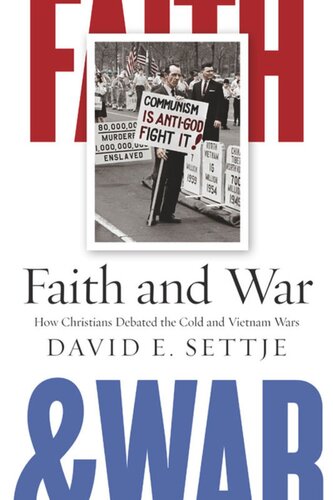

Most ebook files are in PDF format, so you can easily read them using various software such as Foxit Reader or directly on the Google Chrome browser.
Some ebook files are released by publishers in other formats such as .awz, .mobi, .epub, .fb2, etc. You may need to install specific software to read these formats on mobile/PC, such as Calibre.
Please read the tutorial at this link: https://ebookbell.com/faq
We offer FREE conversion to the popular formats you request; however, this may take some time. Therefore, right after payment, please email us, and we will try to provide the service as quickly as possible.
For some exceptional file formats or broken links (if any), please refrain from opening any disputes. Instead, email us first, and we will try to assist within a maximum of 6 hours.
EbookBell Team

4.0
56 reviewsThroughout American history, Christianity has shaped public opinion, guided leaders in their decision making, and stood at the center of countless issues. To gain complete knowledge of an era, historians must investigate the religious context of what transpired, why it happened, and how. Yet too little is known about American Christianity’s foreign policy opinions during the Cold and Vietnam Wars. To gain a deeper understanding of this period (1964-75), David E. Settje explores the diversity of American Christian responses to the Cold and Vietnam Wars to determine how Americans engaged in debates about foreign policy based on their theological convictions.
Settje uncovers how specific Christian theologies and histories influenced American religious responses to international affairs, which varied considerably. Scrutinizing such sources as the evangelical Christianity Today, the mainline Protestant ,Christian Century, a sampling of Catholic periodicals, the African Methodist Episcopal Church, the Southern Baptist Convention, and the United Church of Christ, Faith and War explores these entities' commingling of religion, politics, and foreign policy, illuminating the roles that Christianity attempted to play in both reflecting and shaping American foreign policy opinions during a decade in which global matters affected Americans daily and profoundly.